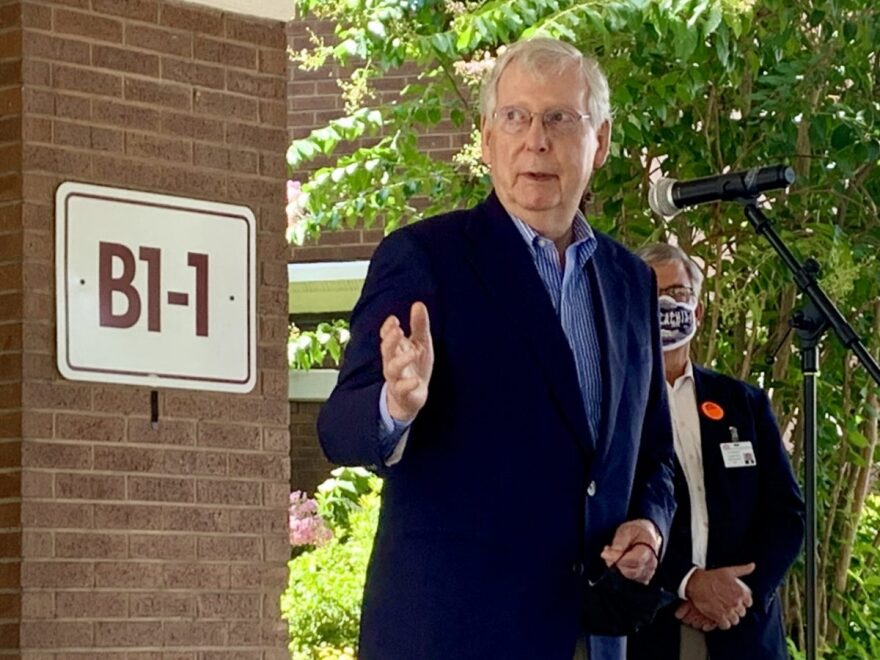Days after the U.S. Supreme Court ruling that overturned Roe v. Wade and triggered an automatic ban on abortion in Kentucky, Senate Minority Leader Mitch McConnell said it’s now up to states to weigh in on abortion rights.
Kentucky is one of 13 states with a “trigger law” that automatically banned most abortions in the wake of decision.
But during an appearance in northern Kentucky, McConnell said state legislatures should be empowered to craft their own abortion policies. He said it was unlikely Congress would take up the issue because the 100-person Senate requires 60 votes to pass most bills. And neither side of the debate has come close to garnering 60 votes.
“What the court did in effect was to return this very controversial issue to the people and their representatives so that it can be decided through the democratic process,” McConnell said.
McConnell compared last week’s ruling that struck down the constitutional right to an abortion to the 1954 Brown v. Board of Education decision, which overturned segregationist school policies.
“Sometimes precedent is outdated or wrong,” McConnell said. “And this issue was sent back to the democratic process for the will of the people through their elected representatives to make their decisions.”
But the decision could have implications for Republicans at the ballot box this year, and McConnell’s chances of regaining control of the U.S. Senate for the first time since 2018.
A recent poll by NPR and PBS showed a majority of Americans disagree with the Supreme Court's abortion decision. With the midterm elections on the horizon, 51% said they would definitely vote for a candidate who would support restoring abortion rights.
McConnell avoided specifics about what abortion policies he would support, as legal battles over the issue continue to play out in Kentucky and across the country.
The ACLU of Kentucky and Planned Parenthood Alliance advocates filed a lawsuit in Jefferson County Circuit Court on behalf of the state’s two abortion clinics challenging the 2019 trigger law. The challenge aims to block two abortion bans arguing that the Kentucky Constitution protects the right to privacy and bodily autonomy.
Meanwhile, a Louisiana judgeissued an order that blocks enforcement of Louisiana’s trigger law.
In November this year, Kentucky voters will weigh in on a proposed constitutional amendment that would add explicit language saying the document it does not protect the right to an abortion.






